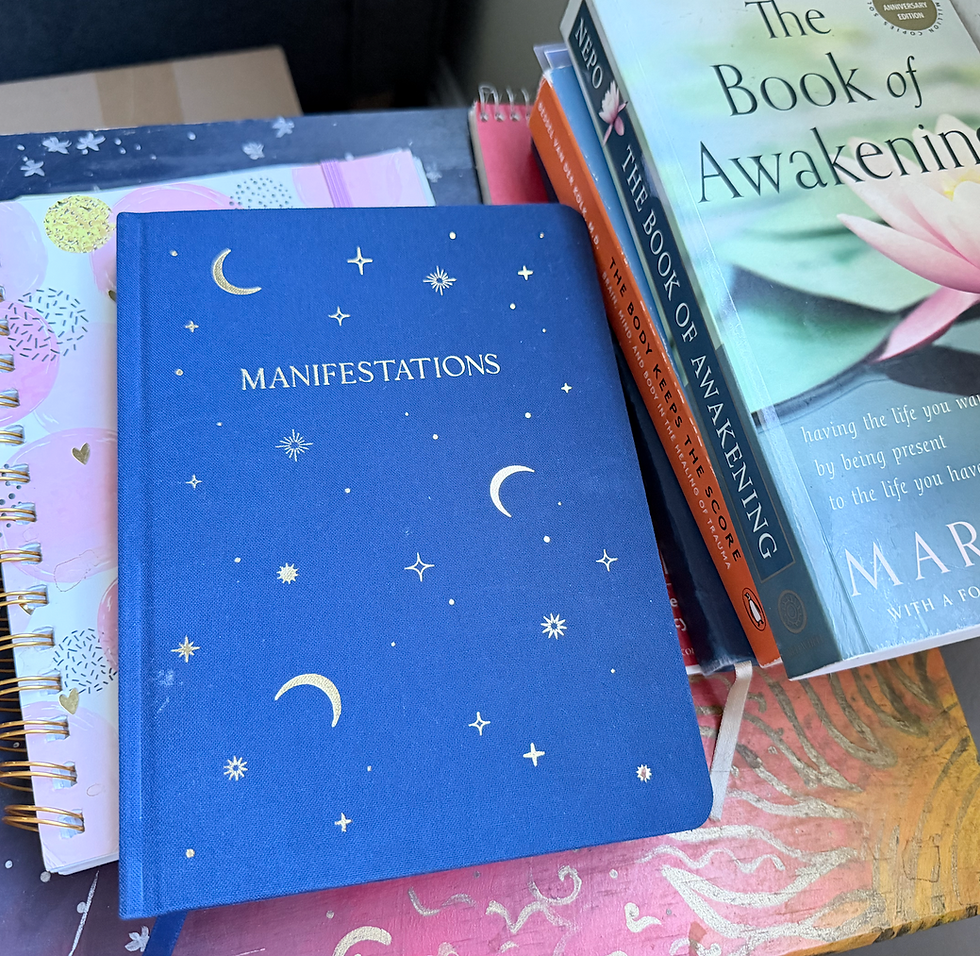Morenasa
- Jeanette Miura

- Oct 20, 2025
- 3 min read
Updated: Oct 21, 2025
At the age of 14, my maternal grandmother told me that when I was born, I was so dark compared to my brother—who was a blonde baby—that my Tia, dad’s sister, started a rumor that my mother had an affair with my father’s Ecuadorian friend, Eddy. My grandmother ended this snapshot by saying, “And then I was so relieved when you got freckles and strands of red hair like your dad, because it proved you were his daughter.”

Last year, my cousins’ father passed away. While going through his belongings, they found photos of us as kids. The timing felt divinely orchestrated, as it coincided with a period when I had begun allowing myself to truly feel the impact of my childhood experiences, memories, and traumas.
Some childhood wounds are so prominent I don’t need to work to remember them. They surface without consent. The more insidious ones lie beneath, constantly threatening my sense of worthiness. Most of the time they rest quietly, unknowingly shaping and influencing my thoughts. But sometimes they grow restless and maladaptive, and I find myself reenacting a scene from my past I don’t remember living.
As a little girl, the messages I received about my worth were often unkind and confusing. My birth caused my mother pain. Even though she says it brought her peace, it actually trapped her in an abusive marriage.
Looking at that photo of us — reminded me of all the things I subconsciously learned as a little girl in our Mexican family that influenced the woman I became. My brother was the güerito—the blond one—and I was the morena-the brown one. I always wished I was lighter like my brother.
My grandpa, who loved me unconditionally, nicknamed me “Morenasa”. He had nicknames for all of us based on our most prominent physical traits. I didn’t mind because he always said it with a smile and greeted me with giant outstretched arms that made me feel safe. He was the only man in my early life I trusted. I think my grandmother resented how much I loved him, and during my teen years filled my head with stories of his infidelity to even her playing field.
I also remember the time when my red-haired, freckled-faced dad yelled at my mom for buying me a red shirt. We had gone shopping with my Tía Rosa, mom's sister, and cousin Letty, and my aunt bought us matching shirts. I was so excited to match with Letty. But when we got home, my dad had a meltdown. He said the shirt made me look even darker than I already was, and he refused to have his daughter looking like a “negra.” My mom returned the shirt.
On both sides, my family was very white. My mom told me the story of her maternal grandmother who refused to take a portrait with her darker-skinned grandchildren. She was a fair, European woman who would only be photographed with her “white” grandchildren. Sometimes I wonder why my mom told me that story.
My abuelita (grandmother), an educated woman with a passion for poetry and flair for oration, once told me she loved me in spite of my skin color because I was smart like her. She explained it like this: in life, you sometimes get bad qualities—in my case, the color of my skin. But then God also gives you gifts. Even though he made me dark, he made me smarter than most, and that was his way of making up for it. My grandmother died praying to her white God.
And then the pendulum swung the other way. My Mexican friends labeled me white, whitewashed, a coconut. People I know and many I don't often ask, “What are you?”
My mom compared me to a white swan born dusky-brown. I, too, got lighter with age, to her relief.
Maybe I'm just too sensitive and an over thinker. Maybe it’s just a bunch of bullshit. After all, most Mexican kids are teased by their families about their appearance - you just can't take these things personally - is what I'm told.
I do know that the humans that raised me did the very best they could.
I just sometimes wish that as a child when I was a "feelings" sponge without the capacity for reflection or analysis, someone had tended to my heart.




Comments